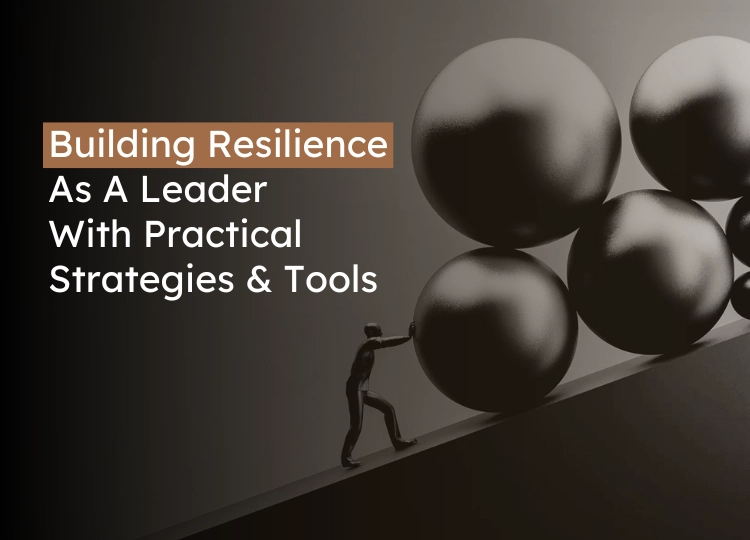Entrepreneurship is often glamorized — the freedom, the success, the innovation. But behind every successful founder is a story of persistence, grit, and overcoming mental roadblocks. What separates those who quit from those who thrive isn’t just strategy — it’s resilience. Entrepreneurial resilience is the ability to stay focused, adaptable, and emotionally strong during the highs and lows of building a business. Mastering this “mental game” is not a bonus skill — it’s a core requirement.
In this article, we’ll explore what entrepreneurial resilience really means, why it matters, and actionable strategies you can start using today to build it.
1. Understanding Resilience in Entrepreneurship
At its core, resilience is your ability to bounce back from adversity, whether it’s a failed product launch, a rejection from an investor, or months of slow growth. But resilience goes beyond just “not giving up.”
In entrepreneurship, resilience means:
- Remaining calm under pressure
- Staying optimistic without being delusional
- Taking constructive lessons from failures
- Continuously adapting to changing conditions
- Maintaining your sense of identity outside your business
Resilient entrepreneurs aren’t invincible — they just know how to recover faster and better.
2. The Psychological Rollercoaster of Building a Business
Entrepreneurship is often compared to a rollercoaster — and for good reason. In a single week, you might land a major client, then lose one. You might feel invincible Monday and completely inadequate by Thursday. This emotional volatility is normal but dangerous if unmanaged.
Common psychological challenges include:
- Imposter syndrome – “I’m not good enough to run this.”
- Founder burnout – Long hours, isolation, and constant pressure.
- Fear of failure – Prevents launching or experimenting.
- Perfectionism – Leads to paralysis and overworking.
Understanding that these feelings are part of the process (not signs of failure) helps normalize the experience and gives you permission to grow through it.
3. Practical Strategies to Build Mental Resilience
1. Build a Resilience Routine
Resilience is like a muscle — it grows with intentional training.
Daily habits for mental resilience:
- Morning journaling: Clear your mind and set priorities.
- Physical activity: Exercise reduces stress and improves focus.
- Mindfulness or meditation: Helps regulate emotions and decision-making.
- Cold exposure or breathwork: These stress-inoculation methods train your nervous system.
2. Reframe Failure as Feedback
Failure is not the end — it’s data. Reframing your thinking from “I failed” to “That didn’t work, what can I learn?” shifts your mindset from defeat to growth.
Use tools like:
- Post-mortem reviews after failed projects
- “What went well?” and “What didn’t?” journaling
- Reading failure stories from top entrepreneurs (they’ve all been there)
3. Cultivate a Support System
Resilience doesn’t mean going it alone. In fact, connection fuels endurance.
Build a trusted circle:
- A mentor or coach for strategic guidance
- A fellow founder or mastermind group for mutual support
- A friend or partner for emotional grounding
The goal is to share burdens, not just wins. Talking things out reduces mental load and provides perspective.
4. Manage Expectations
Unrealistic expectations (e.g., instant success, passive income in 6 weeks) are resilience killers. Set goals, yes — but detach your identity from the outcomes.
Instead:
- Focus on process goals (e.g., write 3 pieces of content per week)
- Celebrate small wins
- Accept the idea that slow growth is still growth
5. Define Your “Why”
On hard days (and there will be many), your “why” becomes your fuel.
Ask yourself:
- Why did I start this?
- What kind of freedom or impact am I building toward?
- Who benefits from my success?
Keep this purpose visible — on a sticky note, in your planner, or in your workspace.
4. Stories of Resilient Founders
- Sara Blakely (founder of Spanx) was rejected by countless manufacturers before launching her product. Her persistence led her to become the youngest self-made female billionaire.
- Elon Musk faced near-bankruptcy with Tesla and SpaceX simultaneously in 2008. He invested his last funds — and both companies survived.
- Brian Chesky (Airbnb) couldn’t raise capital early on. He maxed out credit cards and sold cereal to stay afloat. Now Airbnb is a household name.
Every founder you admire has fought battles behind the scenes. You’re not alone in yours.
Final Thoughts: Master the Inner Game First
The truth? No amount of marketing hacks, business blueprints, or funding can substitute for the mental strength required to stay in the game. Entrepreneurial resilience isn’t a “nice to have” — it’s your superpower.
So train it.
Feed it.
Protect it.
Because when everything else gets tough — your mindset is the one asset you can’t afford to neglect.

